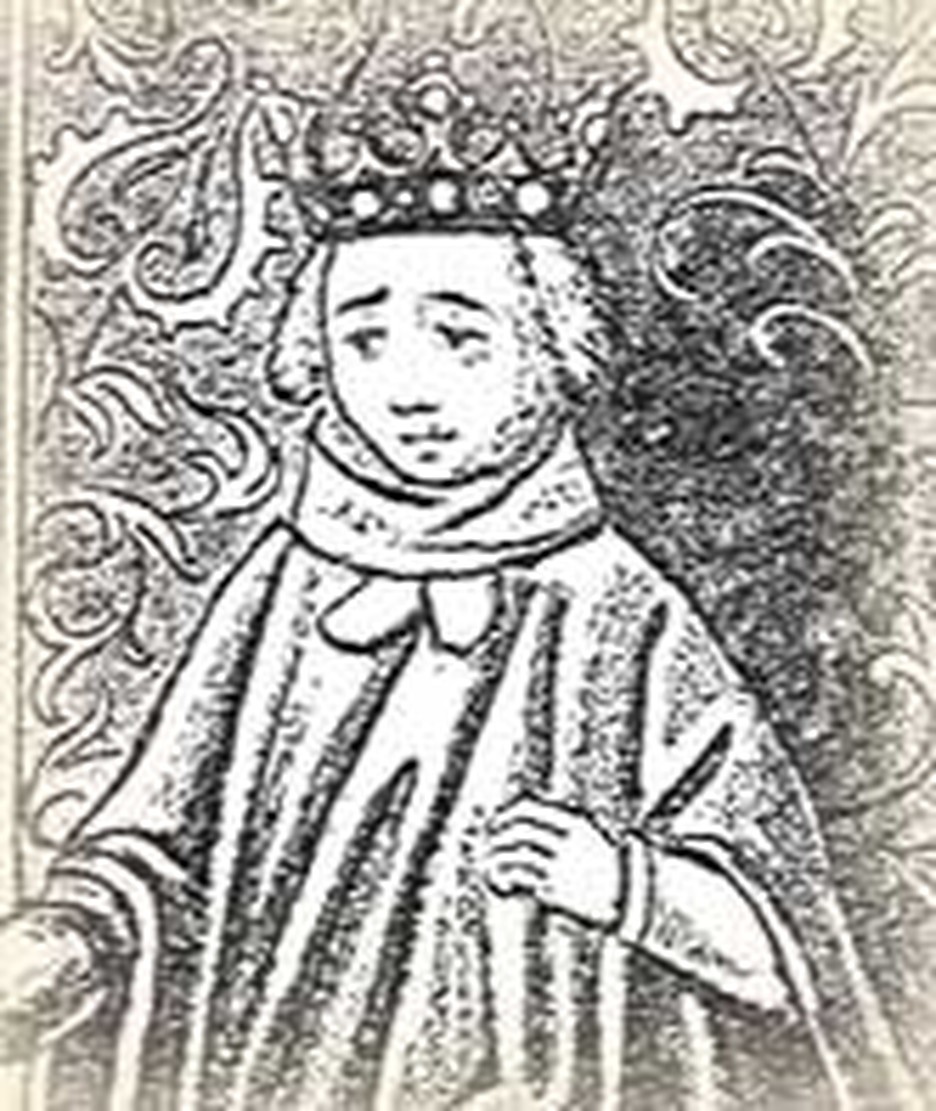
In 1380, the Archbishop of Canterbury, Simon of Sudbury became Lord Chancellor of England. It was an honor that cost him his life.
Outraged by a corrupt church, a failing war with France, and the hardship of special taxes, England's peasants revolted. Under the leadership of men like Wat Tyler, Jack Straw, and John Ball, they petitioned for the abolition of serfdom, and the reform of tithes, game laws and use of the forests. Above all they wanted the hated poll (head) tax abolished. Archbishop Sudbury had approved this crushing burden. The Roman Church was at a low ebb of respect at the time, particularly because of the great schism which had rival popes warring with one another.
John Ball, a priest who was already in hot water with the church for his teachings, preached that Christ's second coming was not far off. He incited the peasants with a bit of doggerel (inferior) poetry: "When Adam dug and Eve span (spun) where was then a gentleman?"
The peasant army swept through the shire of Kent, smashing the fine houses of unpopular rich landlords and burning court documents. They captured Rochester Castle with hardly a fight. Bursting into Canterbury Cathedral during a religious service, they swore to kill Sudbury for his part in the war with France and the taxes that accompanied it.
Sudbury was away in London, visiting King Richard II. The army of common people headed there, destroying the mayor's home, a prison, and Lambeth Palace, home of the archbishops, which were outside the city walls. Someone opened London's gates to them and in rushed the mob, unopposed. They attacked Fleet Prison and the Temple, a gathering place of lawyers, burning up all the legal records and law books that they could get their hands on. They also burned down Savoy Palace, home of King Richard's Uncle. They had not come to loot, but to punish and to destroy.
The fourteen-year-old king met the peasants and agreed to their demands. He handed out charters promising them what they asked for. However, he must have known he could not keep his word; most of the changes that the people demanded could only be passed if Parliament approved--something it was not likely to do.
On this day, June 14, 1381, while Wat Tyler negotiated with the king, the mob broke into the Tower of London, shouting, "Where is the traitor to the kingdom? Where is the spoiler of the commons?" When they found Archbishop Sudbury, he was at prayer before an altar with some of his associates. The rebels dragged all of them outside and down some steps to Tower Hill where they hacked off their heads as traitors. Lifting the heads on pikes, they carried them in triumph through the city.
Satisfied with their worthless pieces of parchment, many of the peasants left. Richard soon amassed forces and hunted down the rebels, showing them little mercy.
Bibliography:
- Clayton, Joseph. "Simon of Sudbury." The Catholic Encyclopedia. New York: Robert Appleton, 1912.
- Conner, John. "John Ball--Primitivist." http://website.lineone.net/~grandlaf/Jnball.htm
- Hook, Walter Farquhar, 1798-1875. Lives of the Archbishops of Canterbury. London, R. Bentley, 1865-1884.
- McKilliam, Annie E. A Chronicle of the Archbishops of Canterbury. London: J. Clarke, 1913.
- "Simon of Sudbury." Encyclopedia Britannica. Encyclopedia Britannica, 1911.
- Various encyclopedia and internet articles.
Last updated July, 2007


